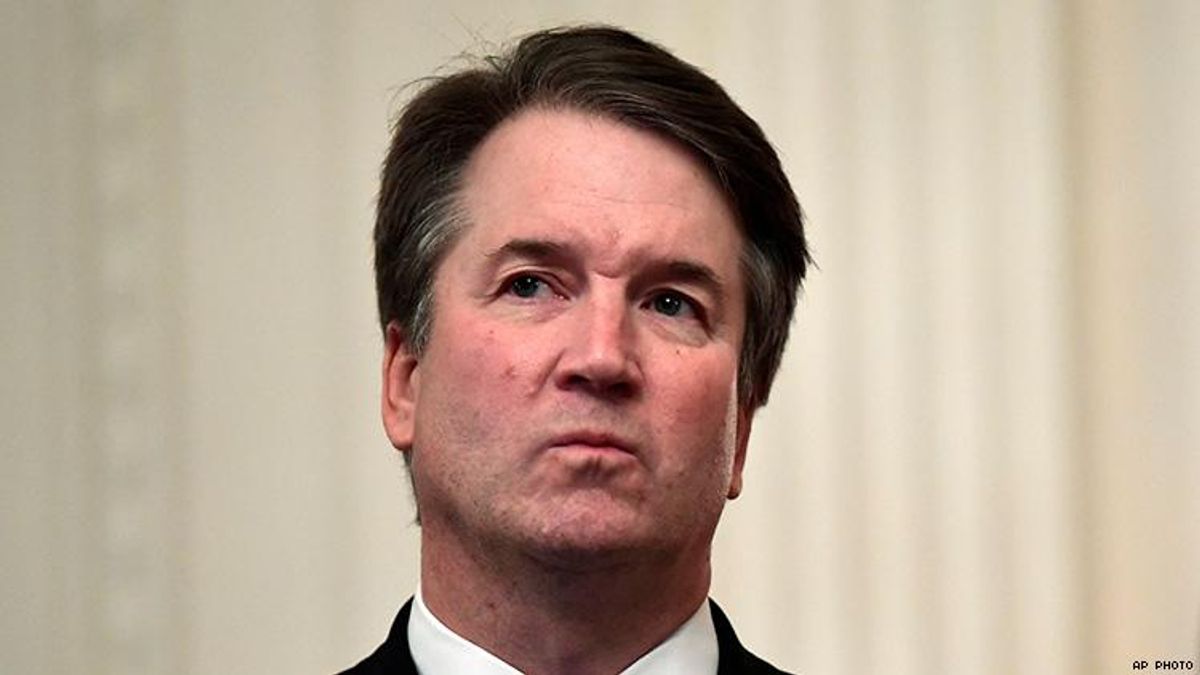Anti-LGBTQ groups have filed lawsuits coinciding with Brett Kavanaugh's confirmation to the U.S. Supreme Court, likely in hopes that the cases will make their way to the high court, which now has a 5-4 conservative majority.
The suits would have to advance through lower courts before SCOTUS gets a shot at them, but they were filed "on cue" with Kavanaugh's confirmation, the Washington Blade reports.
Three suits came out of Texas and this month. Two of them, one filed in federal court and one in state court, challenge Austin's LGBTQ-inclusive nondiscrimination ordinance.
The federal suit was filed by the U.S. Pastor Council, based in Houston, and seeks to broaden religious exemptions to the ordinance's employment provisions, saying it would unconstitutionally force churches and other faith-based organizations to hire LGBTQ people even if doing so goes against their religious beliefs, the Austin American-Statesman reports. But city officials point out that churches' hiring practices are already protected by the U.S. Constitution, and the ordinance has an exemption allowing religious schools and charities to limit hiring to members of their own faith.
The state-level suit, filed by Texas Values, is broader. It seeks to void the employment, housing, and public accommodations portions of the ordinance, according to the American-Statesman. It argues that it should be legal to decline to employ LGBTQ people or rent to them, to refuse spousal benefits to members of same-sex couples, and to require transgender people to use the restrooms designated for the sex they were assigned at birth.
In the third suit, the Pastor Council and the Hotze Health & Wellness Center object to the federal Equal Employment Opportunity Commission's interpretation of Title VII of the U.S. Civil Rights Act of 1964. The EEOC has held that Title VII, in banning sex discrimination, also bans discrimination based on sexual orientation and gender identity. The plaintiffs "seek to enjoin the federal government from enforcing anti-discrimination policies of this sort against any employer that objects to homosexual or transgender behavior on religious grounds," the lawsuit states. It was filed October 6 in federal court.
The EEOC's duties include enforcing U.S. antidiscrimination laws and bringing suits against employers accused of violations. However, courts remain free to interpret these laws.
Hotze Health & Wellness Center was founded by Steve Hotze, a local doctor who was a major opponent of the LGBTQ-inclusive Houston Equal Rights Ordinance and a key player in the effort to repeal it, which voters did in 2015.
LGBTQ activists told the Blade they weren't sure the timing of the lawsuits was tied to Kavanaugh's confirmation, which also came October 6, with Kavanaugh succeeding swing justice and LGBTQ rights champion Anthony Kennedy. But they said they expected to see an increase in this type of litigation, given the new makeup of the Supreme Court and lower federal courts, to which Donald Trump has nominated numerous ultraconservative judges, some of whom have already been confirmed by the Senate. This will mean "more aggressive litigation moves in federal courts by anti-LGBTQ forces," Jon Davidson, legal director for Freedom for All Americans, told the paper.
Kavanaugh does not have a huge paper trail on LGBTQ rights as a federal appeals court judge, the position he held before joining the Supreme Court, but his record is deeply conservative, so he is not likely to be a supporter of LGBTQ equality. He failed to directly answer questions about marriage equality and employment discrimination during his Senate confirmation hearings, while he endorsed the right of religious expression "in the public square" and "in public programs" -- something that in recent years has been less about religious freedom than the right to discriminate.
The Supreme Court has already been asked to review three LGBTQ employment discrimination cases that have gone through federal appeals courts. Two of them involve men who say they were fired for being gay, one a New York skydiving instructor, the other a Georgia social worker. The third deals with a Michigan funeral home employee who says she was dismissed for being transgender. The court has not said if it will take any of these cases, but if it does, Kavanaugh will get a chance to weigh in on LGBTQ rights sooner rather than later.


















































































